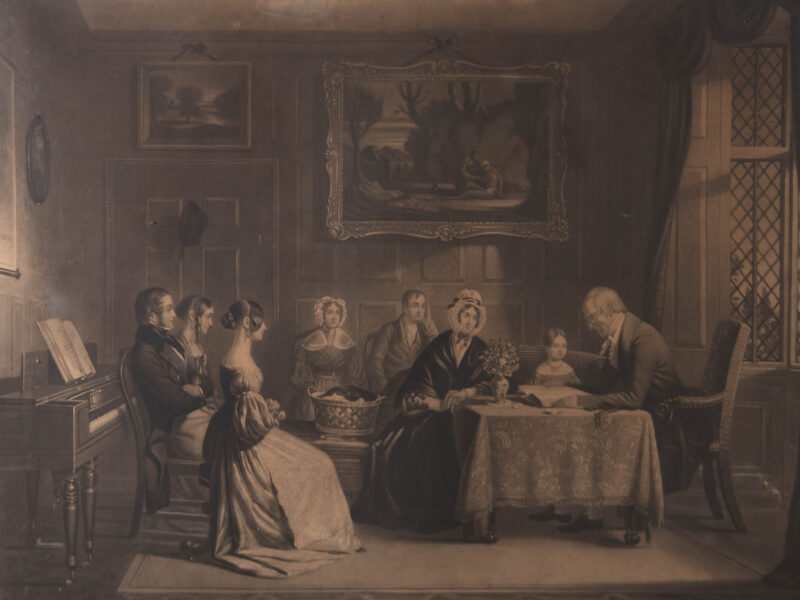There has been no other book in the world’s history that has transformed lives and civilized society more than the Christian Bible. Not surprisingly, the Guinness Book of World Records acknowledges the Bible as the number one best-selling book in the world.
Christians do not find the popularity of the Scriptures surprising because traditional practice widely recognizes that the Bible they hold in their hands today is the Word of God. Over the years, people have challenged and tested the Bible countless times, yet it has consistently prevailed as authentic and infallible. Archaeological findings have accurately confirmed biblical writings dating to the years surrounding Jesus’ departure from this world.
Believers gladly accept archaeological evidence when supporting the Scripture, but maintaining faith in God is at the core of their entire worldview, adhering to the belief that the Scriptures are a divine inspiration handed down by the Almighty Himself:
“All scripture is given by inspiration of God, and is profitable for doctrine, for reproof, for correction, for instruction in righteousness. (2Ti. 3:16)”
J. C. Ryle commented on the popularity of the Bible, writing, “It is the only book in existence which is never out of place and out of date. Other books after a time become obsolete and old-fashioned: the Bible never does. Other books suit one country or people, and not another: the Bible suits all.”[1]
How a person interprets the Bible and either admits its infallibility or not determines their view of God and theological positions. If God did not inspire the Scriptures, why would anyone seek guidance from the Word of God? Such questions have long separated theologians, leading to liberal thought entering the church. Once you enter this realm of discussion, openly denying the reliability, accuracy, and standing of the Scripture, you have created a new Christian standard, one that denies theism and places an emphasis on mankind.
Ryle set the standard for Christians today, “I hold that not only the substance of the Bible, but its language, not only the ideas of the Bible, but its words, not only certain parts of the Bible, but every chapter of the book, that all and each are of divine authority. I hold that the Scripture not only contains the word of God, but is the word of God.”[2]
Despite being mocked and ridiculed, the Bible has withheld the test of time. Archaeology and history have supported and defended the Scripture, but most impressively, the believers who make up the church continue to authenticate the power of God’s Word. If anyone says God does not exist nor is absent from the world today, they have not read the Bible and trusted the Lord in His testimony.
A fair question remains: If world leaders and people across the globe not only embraced but adhered to the teachings of Jesus Christ, would this world be a better place? Anyone who has read the Scriptures knows the answer, as Jesus set a standard that no man could create or carry out alone.
Notes





'J.C. Ryle on the Power of the Bible: Its reliability and impact' have 3 comments
July 26, 2024 @ 12:41 pm Frank Freeman
Certainly NOT trying to dilute the Word, and being fully aware of Deut. 4:2 and Rev. 22:18-19, would it be considered heresy to present a scripture \’study\’ that highlights and discusses the \’key\’ words and phrases – citing the ENTIRE passage fot deeper, personal study – thus omitting the frequent redundancy of text?
July 26, 2024 @ 3:24 pm Mack
Great article, but we must confront some uncomfortable truths that even Bishop Ryle glossed over. He wrote:
In making this statement I ask the reader not to misunderstand my meaning. I do not forget that the Old Testament was written in Hebrew and the New Testament in Greek. The inspiration of every word, for which I contend, is the inspiration of every original Hebrew and Greek word, as the Bible writers first wrote it down. I stand up for nothing more and nothing less than this. I lay no claim to the inspiration of every word in the various versions and translations of God\’s Word. So far as those translations and versions are faithfully and correctly done, so far they are, practically, of equal authority with the original Hebrew and Greek. We have reason to thank God that many of the translations are, in the main, faithful and accurate. At any rate our own English Bible, if not perfect, is so far correct, that in reading it we have a right to believe that we are reading in our own tongue not the word of man, but of God…. Some object that there are many various readings of the words of Scripture, and that we cannot, therefore, feel sure that we have the original inspired Word of God. I answer that the various readings, when fairly examined, will prove to be absurdly exaggerated in number and importance. Dr. Kennicott, Bengel, and others have proved this long ago. No doubt we may have lost a few of the original words. We have no right to expect infallibility in transcribers and copyists, before the invention of printing. But there is not a single doctrine in Scripture which would be affected or altered, if all the various readings were allowed, and the disputed or doubtful words were omitted. Considering how many hands the Bible passed through before printing was invented, and who the transcribers were, it is marvellous that the various readings are so few!
He only believes that autographs were original yet these original manuscripts have all been destroyed. Not a single one exists today. All we have are copies and these, he admits, have errors. And compounding this problem, we are unable to speak with those who wrote to inquire as to the meaning of all the words they used. Ryle makes a bold declaration despite his ignorance of the missing original words and the uncertainty of those words\’ intended meanings. Who is to judge what makes a faithful translation? Yet who can declare \”thus saith the Lord\” without a faithful translation?
At this juncture, the honest person has to make a choice: either reject the notion that we will ever know with certainty what God really said, or else find a stronger basis for our faith than was articulated by Ryle, namely continual divine inspiration in interpretation. The power to speak all languages by the Holy Ghost was given to the church in Acts 2. There is a particular spiritual gift of interpretation, it may not be exercised promiscuously by all believers, but only by specially gifted individuals. \”Have all the gifts of healing? do all speak with tongues? do all interpret?\” 1 Corinthians 12:30; \”Knowing this first, that no prophecy of the scripture is of any private interpretation. For the prophecy came not in old time by the will of man: but holy men of God spake as they were moved by the Holy Ghost.\” 2 Peter 1:20-21. This interpreter is the sole authoritative voice: \” If any man speak in an unknown tongue, let it be by two, or at the most by three, and that by course; and let one interpret.\” 1 Corinthians 14:27. The scriptures are preserved by the church. \” Bind up the testimony, seal the law among my disciples.\” Isaiah 8:16. The role of \’apostolic succession\’ is chiefly for the chain of custody of a faithful witness of Christ\’s words and resurrection. \” And ye are witnesses of these things.\” Luke 24:48; \” Wherefore of these men which have companied with us all the time that the Lord Jesus went in and out among us, Beginning from the baptism of John, unto that same day that he was taken up from us, must one be ordained to be a witness with us of his resurrection.\” Acts 1:21-22. The scriptures not only preserved but repeatedly purified by God\’s power on earth: \” The words of the LORD are pure words: as silver tried in a furnace of earth, purified seven times. Thou shalt keep them, O LORD, thou shalt preserve them from this generation for ever.\” Psalms 12:6-7. The Bible\’s words are spiritual words: \” It is the spirit that quickeneth; the flesh profiteth nothing: the words that I speak unto you, they are spirit, and they are life.\” John 6:63. Such words are not translated by the human scholarship but by spiritual inspiration: \” Which things also we speak, not in the words which man’s wisdom teacheth, but which the Holy Ghost teacheth; comparing spiritual things with spiritual.\” 1 Corinthians 2:13.; \” That your faith should not stand in the wisdom of men, but in the power of God.\” 1 Corinthians 2:5.
Further, Christ is the King of Kings, and he uses kings as his ministers to assist the church. \” And kings shall be thy nursing fathers, and their queens thy nursing mothers…\” Isaiah 49:23; \” …the LORD stirred up the spirit of Cyrus king of Persia, that he made a proclamation throughout all his kingdom, and put it also in writing, saying,\” 2 Chronicles 36:22; \” Where the word of a king is, there is power: and who may say unto him, What doest thou?\” Ecclesiastes 8:4.
The implication of all of this is that God doesn\’t need originals. God can inspire in the Church from among specially ordained men in the succession of apostolic witness and by the special gift of the Holy Ghost and by direction of a Christian king to put the words of God into a present language exactly as they are intended by God to be said in that language. The Authorized King James Bible is God\’s words in English. It is more authoritative than any missing original because it does exist and speaks. Because it is of God, we can say God let the originals fade away with a view that they would eventually become English words that would not fade away: \” Known unto God are all his works from the beginning of the world.\” Acts 15:18; \” By faith Enoch was translated that he should not see death; and was not found, because God had translated him: for before his translation he had this testimony, that he pleased God.\” Hebrews 11:5; \” For then will I turn to the people a pure language, that they may all call upon the name of the LORD, to serve him with one consent.\” Zephaniah 3:9; \” \” As for me, this is my covenant with them, saith the LORD; My spirit that is upon thee, and my words which I have put in thy mouth, shall not depart out of thy mouth, nor out of the mouth of thy seed, nor out of the mouth of thy seed’s seed, saith the LORD, from henceforth and for ever.\” Isaiah 59:21.
July 26, 2024 @ 3:32 pm Mack
*He only believes that autographs were inspired…